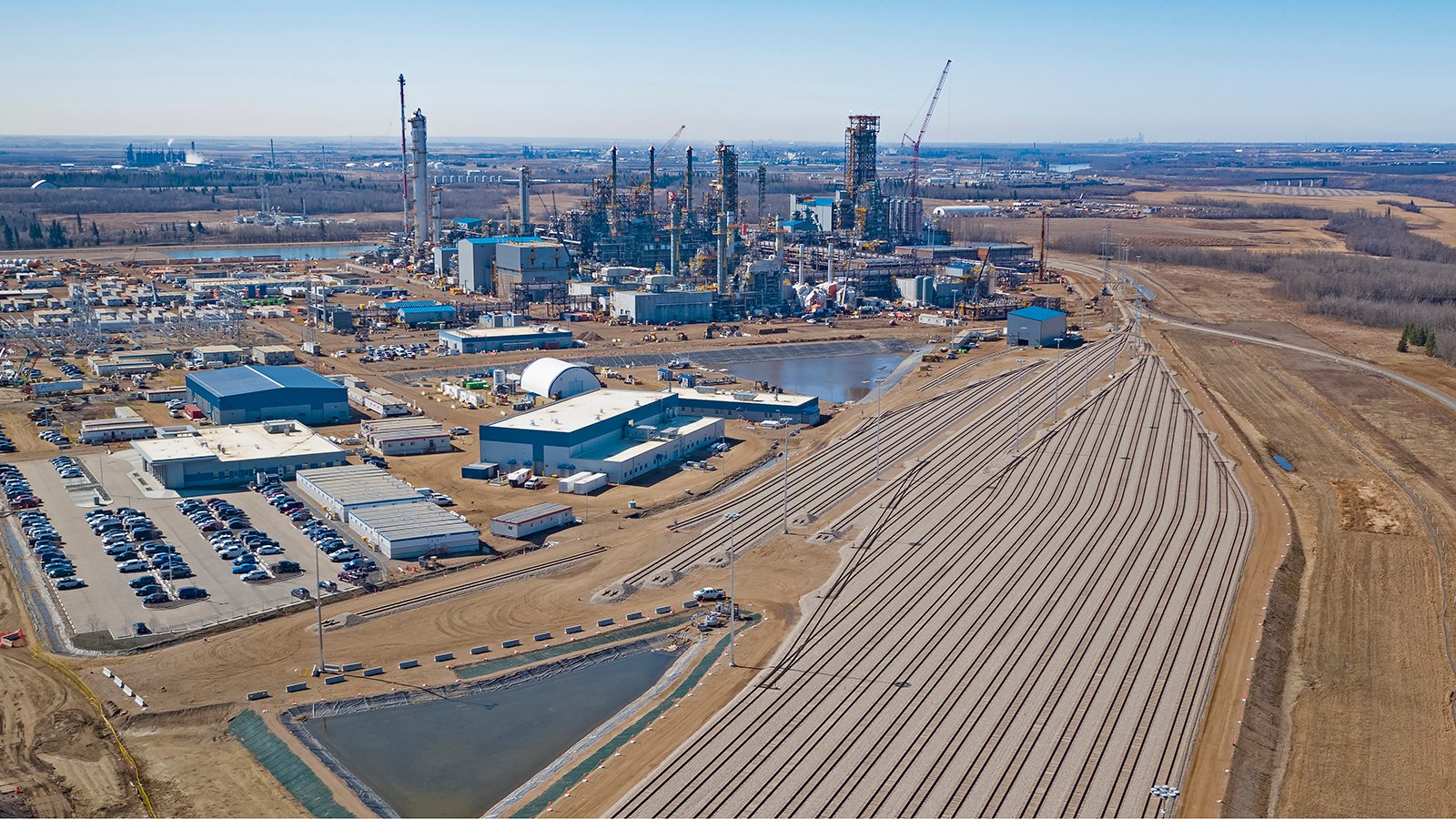
Construction is in the home stretch for the first integrated project in North America that will generate recyclable plastic for use in everyday products, courtesy abundant supplies of propane.
Inter Pipeline Ltd.’s $4.2 billion Heartland Petrochemical Complex near Edmonton is now more than 90 per cent complete. It’s a key asset helping drive a bidding war for the company between one of its competitors and its largest shareholder.
“The world needs a lot of this product, [and] it’s short. There’s nothing coming on to fill the void,” Pembina Pipeline CEO Mick Dilger told analysts on a call announcing Pembina’s $8.3 billion friendly offer. The company shelved its own similar propane-based project in December 2020.
“You’ll recall when we delayed our project indefinitely that we said petrochemicals remains in [our] strategy, it just wasn’t the right time for us. And now it is the right time.”
Inter Pipeline is also facing an $8.4 billion hostile ownership bid from Brookfield Infrastructure partners, but Inter Pipeline’s board of directors continues to support the Pembina deal.
Meanwhile, about 3,000 people work every day at the Heartland Petrochemical Complex. The project has worked nearly 12 million hours without a single safety lost time incident since construction started in late 2017.
Inter Pipeline says there were more than 4,000 people working on the project at peak, and they have laid enough piping and steel to stretch from the plant site in Alberta to the Pacific Coast.
The Heartland project will produce polypropylene, one of the most used plastics in the world.
Its polypropylene is expected to have a greenhouse gas emissions footprint that is 65 per cent lower than the global average, thanks in part to on-site hydrogen-augmented power and utilities generation.
The company is also contributing $10 million over 10 years with the Northern Alberta Institute of Technology to look at ways to reduce plastic waste from entering the environment and to help remove plastic waste that is already there.
The global polypropylene market is expected to grow to $226.8 billion by 2030, from $122.7 billion in 2019, driven by demand in the Asia-Pacific region, according to Dublin, Ireland-based Research and Markets.
The unaltered reproduction of this content is free of charge with attribution to Canadian Energy Centre Ltd.